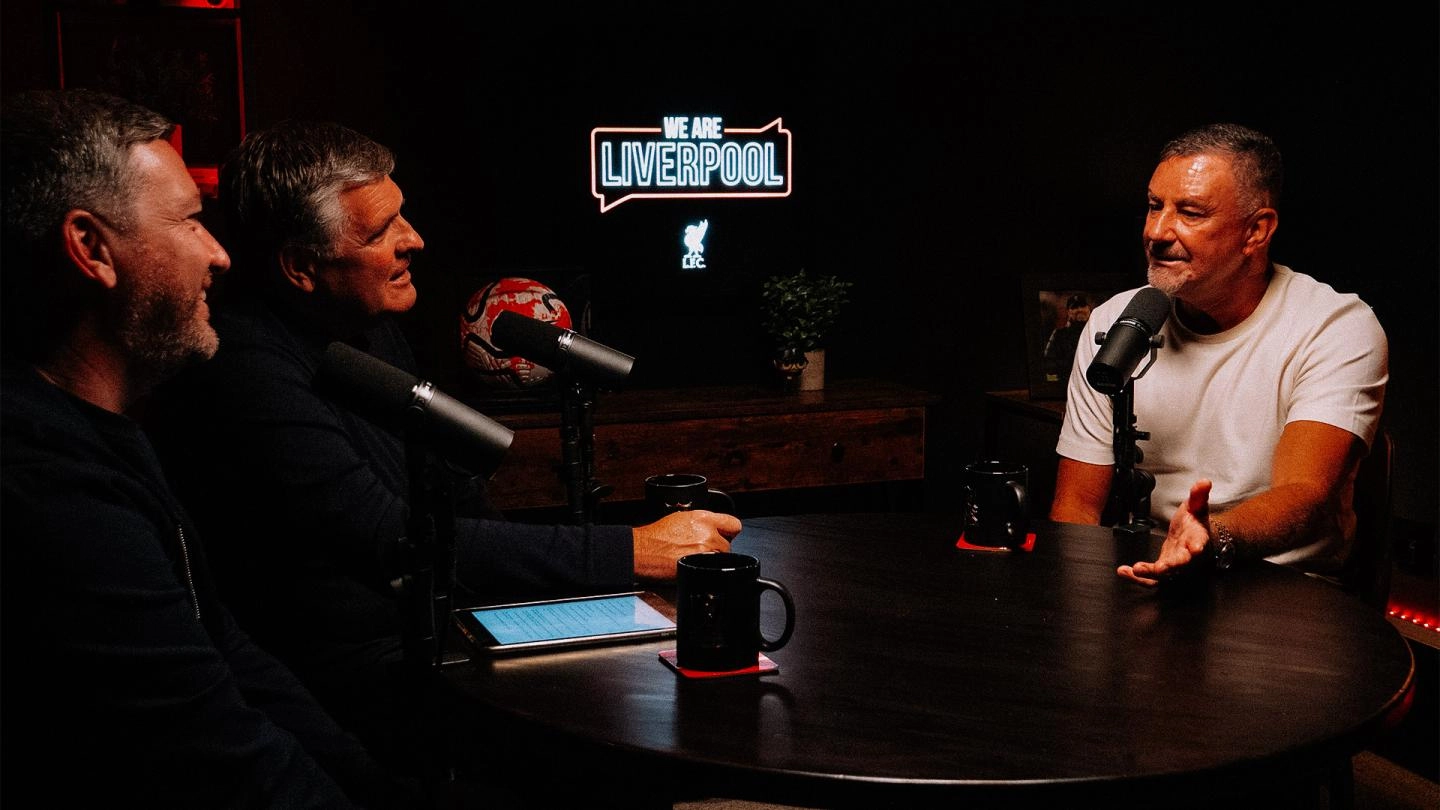PodcastHow John Aldridge handled the pressure of replacing Ian Rush at Liverpool
John Aldridge once had the unenviable task of replacing Ian Rush as Liverpool's main source of goals.
When the man who would become the club's all-time leading scorer departed for Juventus in the summer of 1987, the responsibility in front of goal was passed down to a Scouser who had joined the club a few months earlier.
Aldridge's prolific exploits for Oxford United, and Newport County before that, saw manager Sir Kenny Dalglish earmark him for the role of the team's key figure up front.
The lifelong Red more than proved he was suitable for the job, scoring 29 times in his first full season at Anfield and following up with 31 in 1988-89.
"I wasn't daunted about taking over from Ian," Aldridge says on the latest episode of the We are Liverpool podcast. "Because I knew I was scoring 20 to 25 goals for Oxford and I knew these players around me would follow suit.
"So that wasn't a problem, or carrying the No.8 jersey. I didn't want the No.9 jersey, I always wanted the No.8 jersey because of Roger [Hunt].
"But my problem was going into that dressing room and meeting the lads. I was terrified, I really was. I'm a confident person, as you know, and going in there my heart was pounding and everything.
"Straight away when you go in there, you've got Jockey [Alan] Hansen taking the mickey out of you. It took me just a little bit of time to adapt to the dressing room."
- John Aldridge's appearance on the 'We are Liverpool' podcast can be viewed for free here and is also available on YouTube, Apple Podcasts, Spotify and wherever you get your podcasts
Aldridge had faced and even scored against Liverpool during his rise through the divisions with Oxford.
But even with Rush's departure well known ahead of time, 'Aldo' never thought he'd be a leading candidate to be the replacement.
He recalls: "Everyone knew Rushy was leaving, it was widely known [he was] going to Juventus.
"So when I saw Rush was leaving, I'm sure I'd have been gutted because I'm thinking, 'How are they going to replace him?' But then I'm thinking, 'You never know.'
"I got to know in the morning that we played Man City at Maine Road at like half 10 in the morning. I'm rooming with Bobby McDonald, he said, 'The gaffer wants to see you.' Strange.
"He said, 'The club's accepted an offer for you.' You can't tell me this, this is four hours before we play. I'm hoping it's not Arsenal because I'd been linked to Arsenal in the papers. He said, 'I think you'll like it.'
"Then I thought, 'It's Liverpool.' I thought I was still in bed dreaming. I had to pinch myself a little bit. Is this really true? Then I had to go out and play. I was garbage! I couldn't hit a ball straight. I didn't want to get injured.
"It threw me. You know in the back of your mind, you're thinking, 'A 50-50 ball here, I'm not going for that one. I want to keep these legs straight until I sign for Liverpool.'"
It wasn't until he opened his account for the club in February 1987 versus Southampton at Anfield that it truly sank in that he was actually a Liverpool player.
"When I scored that goal, I went nuts at the Annie Road end," Aldridge says. "Then you come out of the euphoria and then you remember you've got to run back to the halfway line.
"So I'm running back to the halfway line and facing the Kop. Bruce [Grobbelaar] is in goal there and I saw the crossbar. I looked above the crossbar where the barrier was – I went to every home game – and my mates who I went with were still there and watching me score.
"That was the moment that I knew I wasn't dreaming. And the Kop singing my name, it was just a magical moment in my life."
